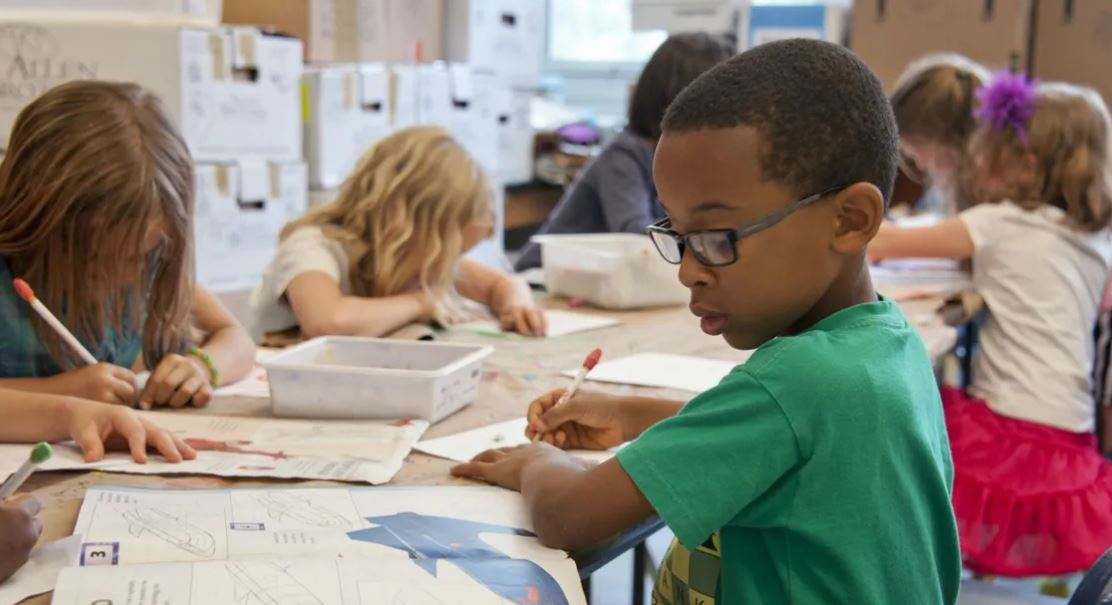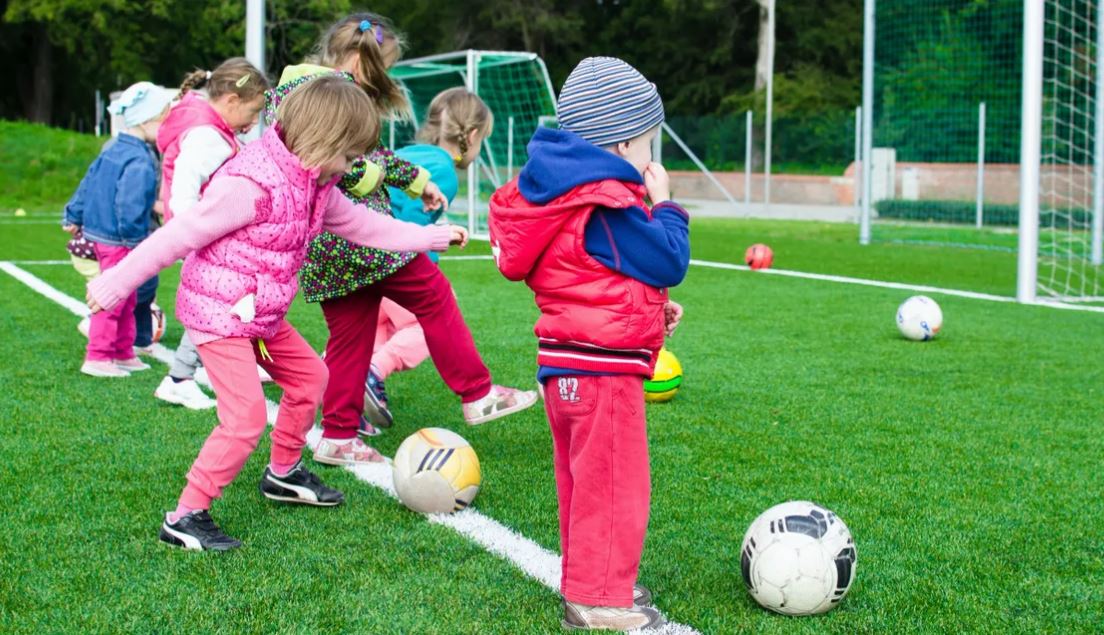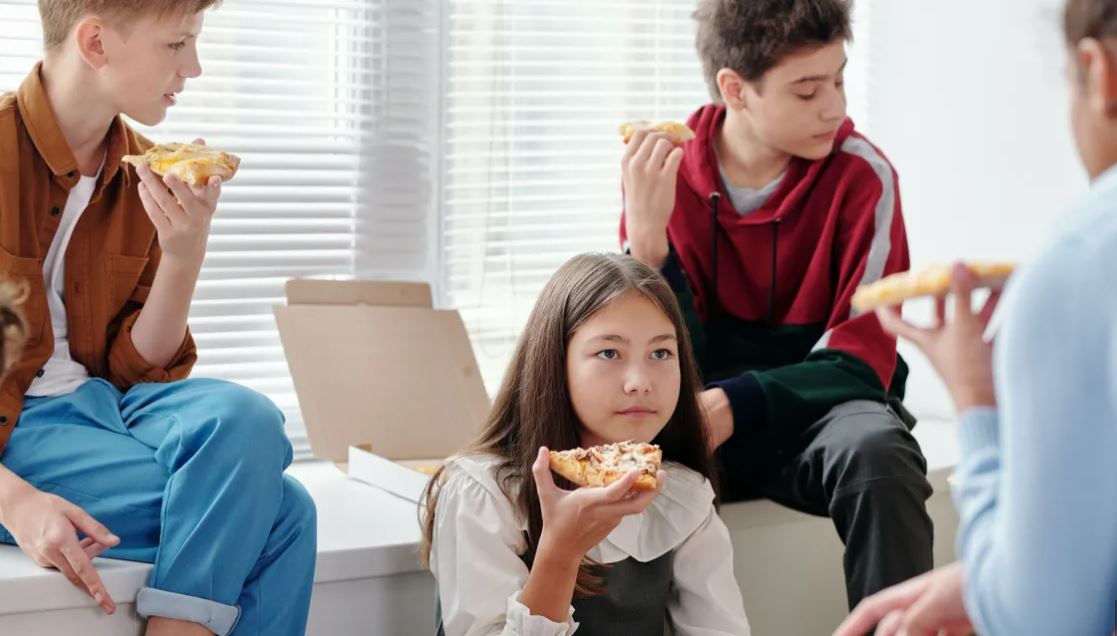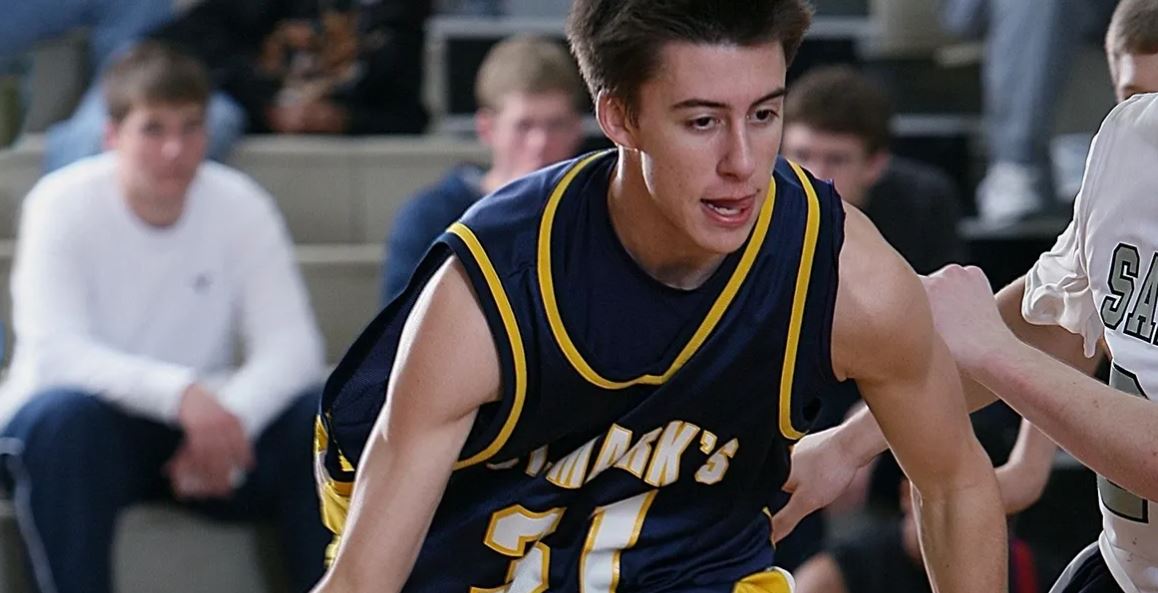New Split International School Campus to Open between Klis and Dugopolje
March 25, 2022 - The new Split International School campus will open between Klis and Dugopolje, fully equipped with a playground, exercise facilities, a community garden, picnic area, and outdoor discussion-style educational spaces set in a natural pine forest.
Split’s first international school opened its doors last September and welcomed over 50 students, representing more than 14 different nationalities and native languages. Digital nomads, expats, local Croats, and returnees from the Croatian diaspora have flocked to the Split International School (www.splitinternational.org) for its welcoming and culturally diverse community, as well as its globally recognized educational programs. Spurred by this exciting growth, and an anticipated enrollment of over 100 students next year, we have opened a new world-class campus to serve the incredible demand for international education in the Split-Dalmatia region.
The new campus is located between Klis and Dugopolje and is less than 25 minutes drive from every neighborhood in Split, Solin, Kastela, Stobrec, and Podstrana. This central location allows families from the entire Split-Dalmatia region easy access to world-class educational facilities comparable to those found in global cities such as New York, San Francisco, London, and Singapore.
“The opening of an international school campus is an exciting and important step for the educational development of the Split-Dalmatia county,” shared Tomislav Đonlić, Head of the Department for Education, Culture, Technical Culture and Sports of the Split-Dalmatia County.
Antonio Kuzmanic, the Deputy Mayor of Split added that “International education is a key enabler of economic development and investment, and is essential to Split’s growth and the future prosperity of the Adriatic coast.”
Maud Truchi, an international businesswoman and investor, shared her thoughts on the importance of the new school campus and its regional impact. “The amazing possibilities of offering an international school in the Split-Dalmatia region will bring a tremendous opportunity to so many local and international families and will help the whole of Dalmatia to bring more families and businesses to our community. The new campus, surrounded by nature, is a wonderful environment for our children to grow, and the quality of the chosen teachers is truly remarkable, putting the school at the highest levels of international education.”
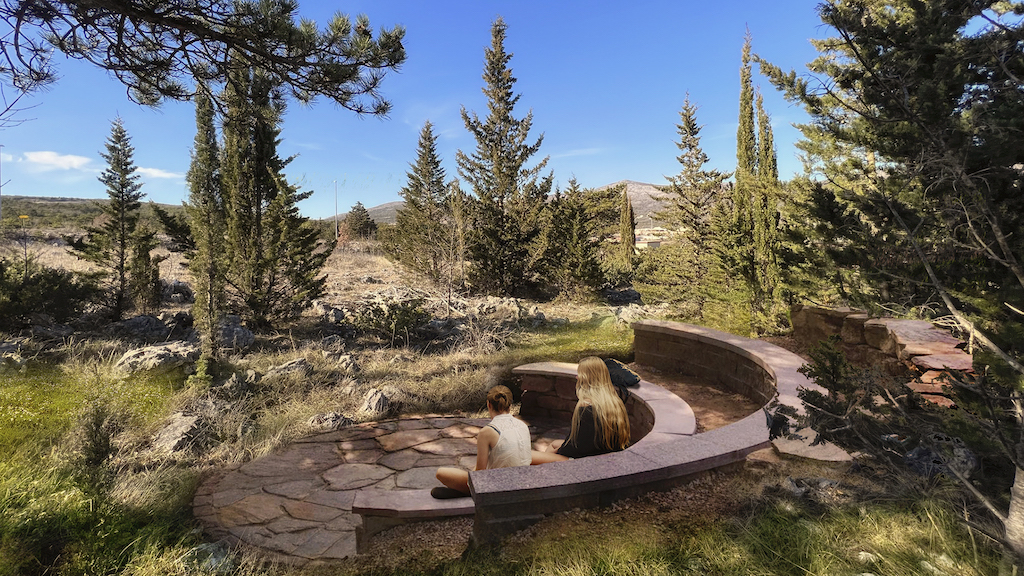
Built on 28.000 m2 of forest and grassland, the campus will be fully equipped with a playground, exercise facilities, a community garden, a picnic area, and outdoor discussion-style educational spaces set in a natural pine forest. Located across the street from our campus is over 500.000 m2 of protected Croatian National Forestry Service land, adding to the natural feel of the location.
The new school buildings have over 1500 m2 of high-quality indoor educational spaces, a library, cafeteria, fabrication lab, and multipurpose facilities comparable to top private schools globally, along with the potential to expand to over 3000 m2 of space to support future growth. Through our collaboration with the Center of Excellence of Split-Dalmatia County, our campus will be made available to local students participating in extracurricular activities and enrichment programs in the area of STEAM (Science, Technology, Engineering, Art, and Mathematics) disciplines. Ivica Zelic, Director of the Center of Excellence of Split-Dalmatia County, shared his excitement for the new facilities. “Our collaboration with the Split International School in the area of educational robotics has already broadened Croatian students’ experience by exposing them to new technologies and learning methodologies. We are excited by the opening of this new international campus and to have its facilities available to students in the Split area.”
Transportation to the new campus will be supported by a new private school bus service similar to those in use in other major international cities. Service will be provided to neighborhoods throughout the city of Split, from Meje to Znjan, to allow students the convenience of direct transportation. The expected travel time of the bus service is 30 minutes from its starting to terminal points, with many neighborhoods enjoying transportation times of less than 15 minutes. Through this service, all of Split will be able to access world-class educational services and facilities.
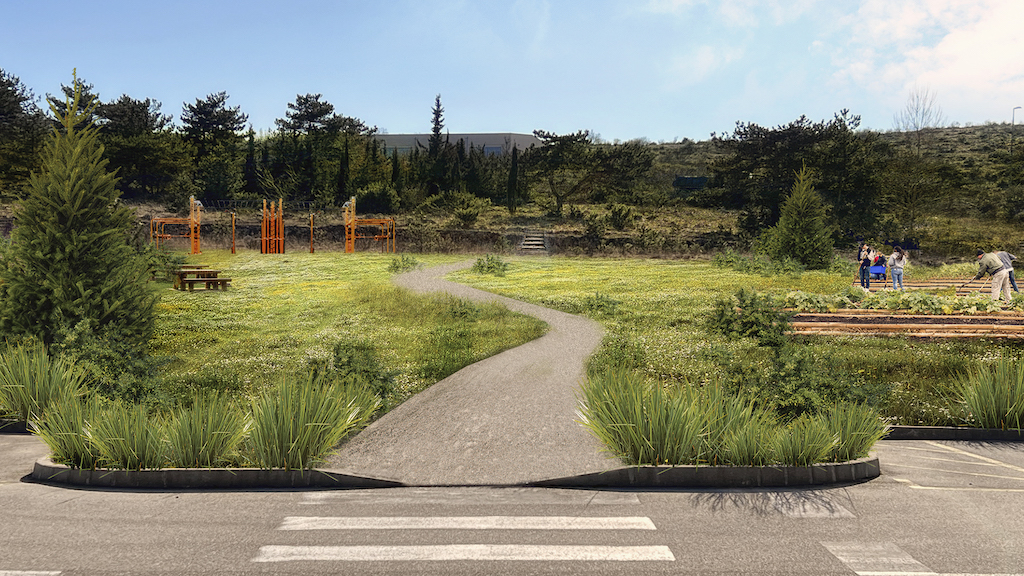
Our families are excited about the new campus location, the continued growth of our school, and its broader impact on the region. “Split has been waiting for a true international school for a long time,” shared Tatiana Paviluk, a Ukrainian mother, entrepreneur, and long-term Split resident. “My oldest son attended boarding school in London, but I’m very excited for my younger daughters as this new campus exposes children to nature in a way that isn’t possible in a city.”
Wayne T. Slappy, a financial advisor from Los Angeles who relocated to Split with the Digital Nomad Visa program, has fallen in love with Dalmatia. “We couldn’t be happier with our decision to come to Croatia. Split International School has been an integral part that helps us make Split our home, and I’m sure the new location will only add to the variety of options for our children.”
Perica Bosančić, the mayor of the municipality of Dugopolje, shared a special welcome. “We are honored that Split International School has chosen us as its new home. We are fully convinced that we will have an enviable level of cooperation and that this is just the beginning of a very successful story. Welcome!”
For more, check out our lifestyle section.
Split International School: New Education Option for Expats and Locals
February 5, 2021 - An important and long overdue addition to the Dalmatian capital - Split International School plans to open its doors in 2021.
One of the most interesting places to observe change in Croatia in the 18 years I have been here has been the Dalmatian capital of Split. Today, of course, it is one of the top destinations on the Adriatic coast, as well as one of the hip destinations in Europe, but it certainly was not always that way.
When I bought my house in Jelsa back in 2002, Split was known simply as the Gateway to the Islands, a place you overnighted on the way to somewhere better. Diocletian's Palace was rather an intimidating place in parts and had its own drug issues, and tourism was nothing like as big as it is today.
Indeed, 2002 was the year (from memory) that Split opened its first hostel. Things developed over the years, but it always seemed strange to me that a tourist city of 200,000 people had so few facilities for foreigners.
Including a portal in English for tourists and expats, one of the reasons I started Total Split way back in 2012 with a friend.
I remember reporting on the groundbreaking moments. A JAPANESE restaurant opening in Split in 2013 - wow!
Slowly, more and more expats started to put down roots and open diverse businesses. Some Croatians returned from abroad to bring back their foreign inspirations and add it to the mix. After a particularly intoxicating day of foreign influx and diversity in 2015, I wrote an article called Halal Restaurants, American Bars, Swinger Tours: Is Split Finally Becoming an International City?
But as popular and international as Split was becoming, there was still something essential missing, and I found myself asking the question in December, 2018 - Is It Time for an International School to Open in Split?
As yet more expats moved to the city and Central Dalmatia, the need was clearly there for a Split international school. I have probably had more than 100 emails on the subject based on the article above asking if there was any news on an international school in Split.
Well, finally, it seems... there is!
Meet Split International School, who reached out to me to introduce themselves in the form of our of the founders, Dr John Rogosic. I asked him when and why they decided to open Split International School
"Our team began working on this project during the Summer months of 2020, when some of our founding families decided to relocate to Croatia and began looking into educational options for their children. While there are several international schools in Zagreb and Varaždin, there are none in the Split or along the Dalmatian coast. We felt it was important to offer an international curriculum in the Split area as Split is a growing international city, from its beautiful nature and climate to its unique culture, foreigners and returning Croats alike want to live in Split.
"The IB program offers a unique benefit of being offered in 156 countries worldwide, allowing digital nomads and other traveling professionals the flexibility to enroll their children in a similar program in many different locations while providing their children with continuity in their education. Founding this school now is particularly important in light of the new digital nomad visas being offered in Croatia, and as the world has continued to transition to remote work throughout the Covid-19 pandemic. We also hope to offer additional support to short-term digital nomads who may be planning to stay in Croatia for less than a full school year, or plan to transition partway through a semester.
"Beyond the foreign and digital nomad clientele, we felt it was important for our school to encourage local students to join as well and learn to engage with students from different backgrounds. We aim to create a school culture where students can excel intellectually, feel safe to take academic risks, learn to celebrate cultural differences, and are well-prepared for engagement in the broader international community."
When will Split International School open its doors?
"We are on track to offer our first classes in September, 2021. We still are under consideration by the International Baccalaureate Organization (IBO) and have to complete our certification process with the Ministry of Science and Education (MZO), but both organizations have been incredibly helpful and supportive of our effort. We look forward to continuing to work closely with both organizations to bring our program to fruition. We do not expect to offer all grade levels during our first year, but our program will grow organically based on the needs of interested families. Our priority enrollment period is through mid-May 2021, at which time we hope to have the majority of families signed up for our fall program, however we will continue to admit transfer and relocation students throughout the summer to meet the needs of families."
Will local kids also be able to attend?
"We are looking forward to welcoming both local and foreign students to our school, and to creating a true international community where students from different cultural backgrounds can come together to exchange ideas and share experiences. We offer a flexible, need-based tuition program, that carefully considers each family’s financial situation and adjusts to meet their needs. We also have a couple of exciting potential partnerships in the works that we hope will allow us to offer additional scholarships to local students, but we’re not quite ready to discuss them publicly before those partnerships have been solidified. We encourage local families to contact us and discuss the program to see if it will fit their children’s needs. Although all of our classes will primarily be taught in the English language, every student will also study the Croatian language at a level appropriate to their skill level, and we plan for our school to be cross-compatible with the Croatian public education system."
I asked about fees and whether or not there would be flexible pricing for less well-off families:
"We are offering a flexible tuition program, because we want to be able to satisfy the needs of both international and domestic students. While there is a full “sticker price” for the school - which represents full tuition - we also want to be able to offer families discounts based on their current income levels. This is common practice in private schools across the globe, and is sometimes referred to as “need-based admissions” or “need-based scholarships”. For more information about our flexible tuition program, interested families should contact the school directly at This email address is being protected from spambots. You need JavaScript enabled to view it. in order to find out more details. We will offer additional services such as school lunch, transportation options, and additional language support as well, which will be available to families who wish to select those options."
About the IB curriculum:
“The IB curriculum engages younger students in ways typically not seen before university level education, and pushes them to think deeply, ask questions, and become active participants in their own learning.”
I asked John for a quote for the article, and he offered this anecdote from his days teaching in California, with regards to teaching at an international school and the kinds of experiences that an international education offers students.
“One of my favorite memories as a teacher happened while teaching a multi-grade level introductory high school biology class at an international school in California. There were students from China, India, the UK, America, and Sweden in the classroom, all in the range of 14 to 17 years old. We were discussing ecology and pollution, and had touched upon the topic of environmental regulation. One of our domestic students mentioned that he didn’t see the need for environmental regulation, and that he’d heard from his parents that government regulations are bad for the economy. The hand of one of our chinese students shot up in disagreement, and he shared a powerful story about his experiences with air pollution growing up in a village in northern China. The class was silent for a moment. Some students were in disbelief as others shared similar stories. I don’t think I had to say a word as a teacher for the next 20 minutes, as students went back and forth discussing the topic, all the while drawing on their personal experiences related to pollution and politics from their own lives and travels. The conversation tied together the fields of biology, economics, government, society, and cultural attitudes. As teachers we live for moments like these, where our students engage with each other intellectually as mature global citizens. I think this story really speaks to the power of students learning and growing with others from different social, cultural, and geographic backgrounds, and is the kind of learning environment I hope to create in our own international school here in Split.”
Exciting news for many, I am sure, and you can learn more about Split International School, the IB philosophy, Harkness Method, and FIRST Robotics on the Split International School official website.



